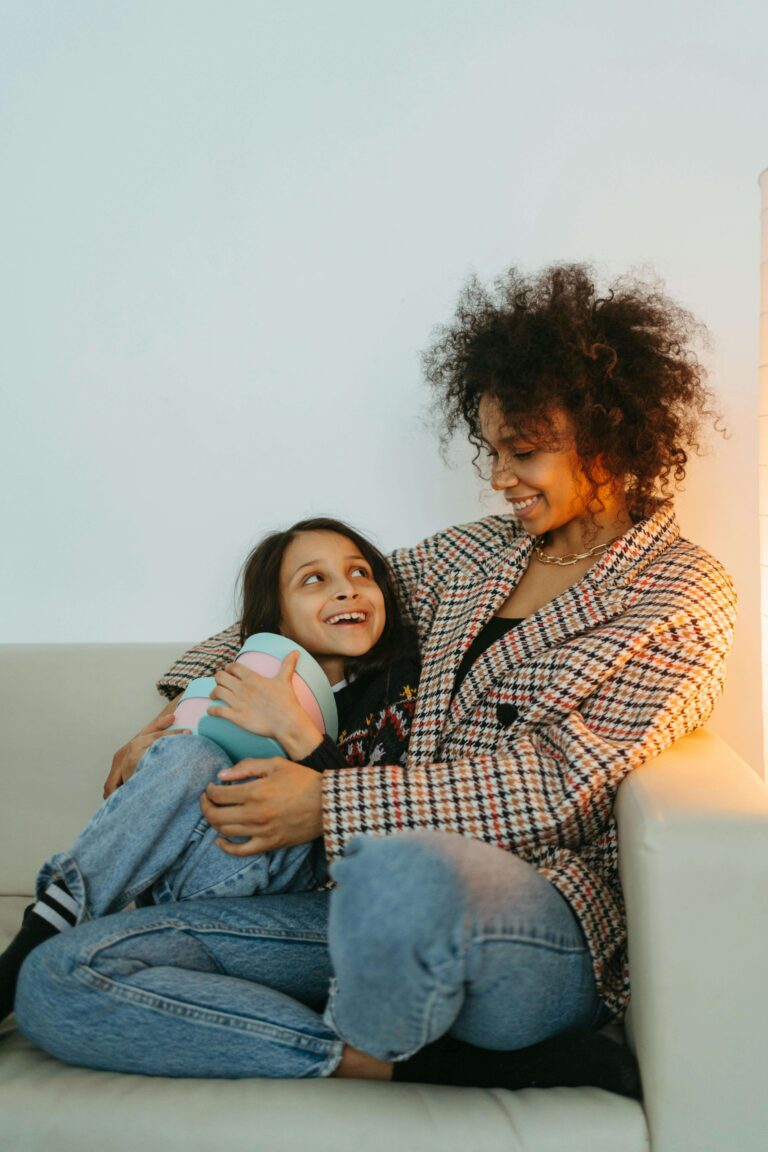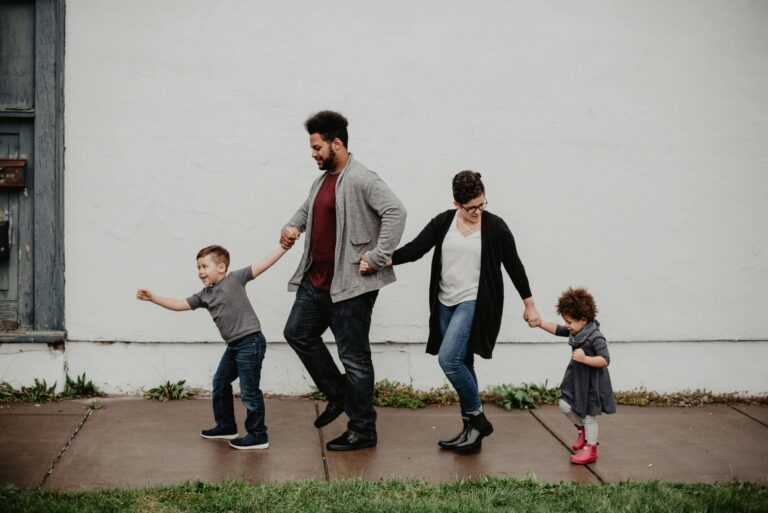At Therapy Ties, we often notice a pattern during relationship therapy: couples and individuals spend years focusing on improving their relationships, learning communication skills, attending workshops, and reading books. And yet, something still feels missing. Conversations can be polite, functional, and calm, but the warmth and intimacy they long for are absent.
The reason is simple but profound. The quality of your relationships with others is a direct reflection of the relationship you have with yourself. How you treat, understand, and show up for yourself forms the foundation for how you relate to everyone else.

Disconnection From Yourself Impacts Every Relationship
Many people are disconnected from themselves. They may constantly self-criticize, doubt their worth, or ignore their own needs in favor of pleasing others. When this is the case, no amount of communication technique will create a deep connection. Polite words can hide a restless heart. Thoughtful phrasing cannot replace emotional presence. If you are not showing up fully for yourself, it is nearly impossible to show up fully for another.
Cultivating a grounded, authentic relationship with yourself is the first step toward authentic connection. Self-awareness allows you to notice your emotions, identify your triggers, and understand your patterns. Self-compassion gives you permission to accept your imperfections, to forgive yourself for past mistakes, and to celebrate your growth. Self-trust creates the courage to be vulnerable, knowing that even if others do not respond perfectly, you will remain whole.
The Role of Self-Awareness and Boundaries in Healthy Relationships
Consider an example: if you constantly tell yourself you are not enough, you may unconsciously seek validation from your partner, expecting them to fill a void that only you can meet. This can create tension, frustration, and even resentment. On the other hand, if you have nurtured a healthy relationship with yourself, you approach interactions from a place of clarity and confidence. You can express needs without fear, listen without defensiveness, and respond with empathy rather than reactivity.
The relationship you have with yourself also shapes your boundaries. When you honor your limits and take care of your emotional needs, you create space for others to do the same. When you are honest with yourself about your feelings, you can speak authentically rather than perform or hide behind politeness. Building a strong inner relationship is not selfish. It is a prerequisite for every meaningful connection in your life. When you prioritize your own emotional well-being, you show others that vulnerability is safe, honesty is valued, and connection is possible.
Self-Awareness Creates Space For Choice
Self-awareness transforms reactivity into choice. It helps you respond rather than react. Choice is the heartbeat of healthy connection and the choice to see everything as part of your journey, part of a bigger lesson. Every hurt comes to teach you something about yourself that can help you connect to yourself and be a better version of yourself.
Many people believe they can shame themselves into growth. If I am hard enough on myself, I will finally change. But self-criticism creates paralysis, not progress. Self-compassion is the opposite. It means speaking to yourself with the same warmth you would offer someone you love. It is saying, “This is hard, and I am still worthy of kindness.” Ask yourself a simple question: Would you speak to your child the way you speak to yourself? Would you feel comfortable hearing your best friend speak to themselves the way you speak to yourself in your head?
Why Boundaries Are Essential For Healthy Relationships
Healthy boundaries are an act of self-respect, not selfishness. They define what helps you stay emotionally safe and connected. Boundaries are your way to teach the world how to be with you. They are your way to teach others what feels good and what does not. The only way people will know how to be with you is if you tell them. Boundaries are the invisible line that helps you and the world understand when any interaction—physical, emotional, intellectual, or sexual—feels good and safe and when it does not.
Boundaries sound like:
“I need time to cool down before we talk.”
“I want to help, but I cannot commit to that right now.”
You might also say, “I love you, and I also need space tonight.”
When you set boundaries from a place of clarity, you protect your capacity to love. You teach others how to treat you, not through control but through consistency. Boundaries make intimacy sustainable.
Healing Begins With Understanding
Healing begins with understanding, not fixing. Broken relationships often carry unspoken hurt or unresolved patterns from the past. Therapy helps uncover those emotional knots, old fears, disappointments, anger, and misunderstandings, and gently untangles them so that new, healthier ties can form.
In relationship therapy, we explore the parts of you that feel unworthy or unseen and offer them understanding instead of criticism. We sometimes call this process reparenting yourself. You treat the wounded inner child by doing things you needed as a child. We do not judge or criticize our parents. We accept that they did their best, and now it is our job to complete what they could not do for us.
The quality of your relationship with yourself shapes every other connection in your life. If you cultivate self-awareness, self-compassion, and boundaries, you create the foundation for healthier, more authentic, and more fulfilling relationships.

Practical Steps to Strengthen Your Relationship With Yourself
Developing a strong relationship with yourself takes practice and intention. Here are exercises and reflection prompts to help you nurture self-awareness, self-compassion, and healthy boundaries.
Daily Self-Check-In
Set aside five to ten minutes each day to pause and reflect. Ask yourself:
- What am I feeling right now?
- What does my body want me to notice?
- What do I need in this moment?
Write down your answers in a journal. Over time, you will notice patterns, triggers and unmet needs. This simple practice strengthens your emotional awareness and keeps you connected to your inner world.
Reparenting Exercise
Think of a moment in your childhood when you felt unseen, misunderstood or unworthy. Imagine comforting that younger version of yourself. Ask yourself:
- What did I need in that moment?
- How can I give that to myself now?
- How can I speak to my inner child with warmth and reassurance?
You might write a letter, say affirmations aloud, visualize holding your younger self or even use a photo of yourself as a child if you need help connecting. This practice helps heal old wounds and builds self-trust.
Self-Compassion Reflection
Notice how you speak to yourself throughout the day. When you catch self-critical thoughts, ask:
- Would I speak to my child or best friend this way?
- How would I reframe this with kindness?
Replace critical self-talk with supportive, encouraging words. Even a small shift: “This is hard, and I am doing my best”, can transform your inner dialogue and your relationships.
Boundary Mapping
Take a piece of paper and draw circles representing different areas of your life: work, family, friends, romantic relationships, and yourself. For each circle, ask:
- What feels safe and good here?
- What feels uncomfortable or draining?
- Where do I need to set clearer boundaries?
Write down one actionable boundary for each area. For example, “I will take a thirty-minute walk after work before responding to emails” or “I will speak honestly about my needs with my partner tonight.”
Journaling for Patterns and Triggers
Choose a recurring conflict in your relationships. Ask yourself:
- What emotions am I feeling during this conflict?
- How do my past experiences influence my reaction?
- What is my part in this pattern?
Reflecting in writing helps you recognize automatic reactions and opens space for conscious choices. Over time, this practice helps you respond with clarity instead of old habits.
Practicing Vulnerability
Start with small steps of honesty in your relationships. Share something you feel or need without expecting perfection in response. For example:
- “I felt hurt when I thought my feelings were not heard today.”
- “I need some time alone to recharge so I can show up fully with you.”
Notice how expressing yourself openly affects your connection. Vulnerability is a skill that grows stronger with practice and builds authentic intimacy.
Reflection Prompts for Growth
Use these prompts regularly to deepen self-connection:
- What part of me do I want to understand better today?
- When have I shown up authentically recently? How did it feel?
- What am I resisting feeling, and why?
- How can I bring more kindness to myself today?
- What lesson does this current challenge hold for me?
Answer these prompts in a journal or meditate on them quietly. They help you shift from reactivity to awareness, fostering inner clarity and peace.
Bringing It All Together
When you practice self-awareness, self-compassion, healthy boundaries, and vulnerability, you build a foundation for every relationship in your life. Your connections become richer, more authentic, and more resilient. You start showing up as yourself fully, and others respond to that presence in kind.
The journey begins with small steps, pausing to notice your emotions, speaking kindly to yourself, and setting clear boundaries. Over time, these practices ripple outward, transforming not only how you feel internally but how you connect with your partner, family, friends, and colleagues.
Working with a relationship therapist in Los Angeles, CA can help you deepen this process, offering guidance, perspective, and tools to strengthen your connection with yourself and others. Every relationship starts with the one you have with yourself. Nurture it. Protect it. Show up for it. And watch how every connection in your life transforms in response.

Begin Healing Within Through Relationship Therapy in Los Angeles, CA
If you’re ready to move beyond surface-level connection and explore the roots of your relationship patterns, relationship therapy in Los Angeles, CA can guide you toward true emotional growth. By understanding and nurturing your relationship with yourself, you create space for deeper, more authentic connections with others. At Therapy Ties, we’ll help you rediscover your inner self so every relationship in your life can flourish. Follow these three simple steps to get started:
- Schedule a free 15-minute consultation to see if relationship therapy is right for you.
- Begin meeting with supportive relationship therapist, Liron.
- Start healing your relationship with yourself!
Additional Services Offered at Therapy Ties in Los Angeles, CA
At Therapy Ties, I believe the foundation of every healthy relationship begins with the one you have with yourself. I can help you explore how self-awareness, compassion, and authenticity create the groundwork for deeper connection with others—something I help clients cultivate every day. Alongside relationship therapy in Los Angeles, I offer individual therapy, couples therapy, and anger management for those seeking growth, clarity, and emotional balance. Serving Woodland Hills, West Hills, Agoura Hills, Encino, Tarzana, Sherman Oaks, North Hollywood, and the greater Valley, Therapy Ties provides a supportive space to heal old patterns, strengthen bonds, and rediscover your authentic self.
About The Author
Hi, I’m Liron, a Licensed Marriage and Family Therapist at Therapy Ties in Woodland Hills. I guide individuals and couples in reconnecting with themselves so they can experience deeper, more genuine relationships with others. My approach integrates Humanistic values with Emotion-Focused Therapy, Gestalt, and Family Systems to help clients feel safe, understood, and empowered to grow.
Born in Israel and fluent in both Hebrew and English, I earned my Master’s in Marriage and Family Therapy from Phillips Graduate Institute and my BA in Psychology from UCLA. As a certified anger management specialist (CAMS III), I support clients in managing emotions, breaking free from old patterns, and building greater self-trust and compassion.
Reach out today to begin nurturing a stronger relationship with yourself and transforming the way you connect with those around you.












